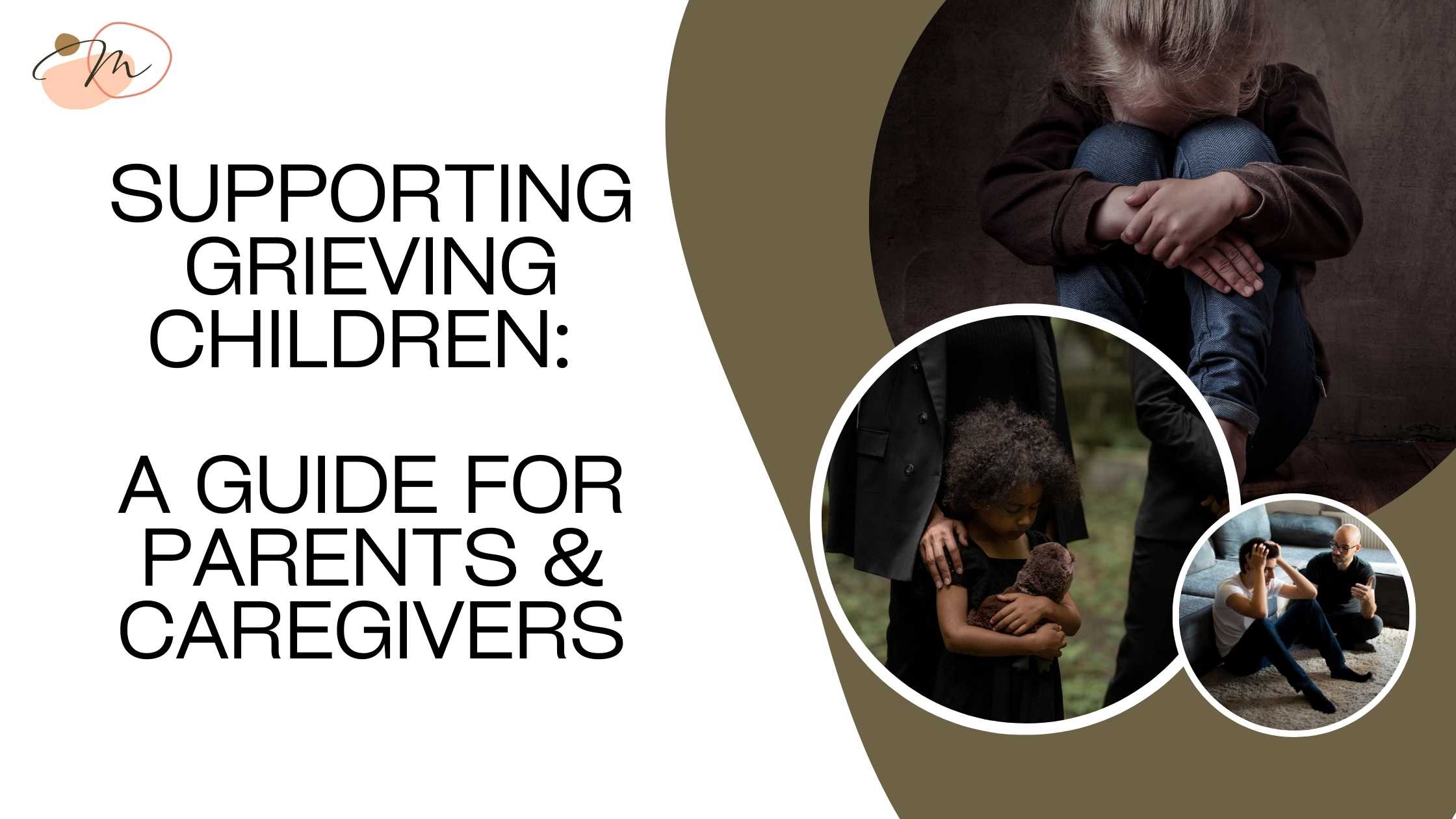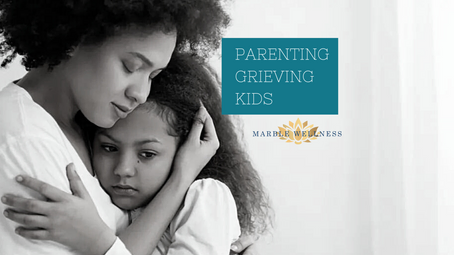Grief is a complex emotion that affects people of all ages, but it can be particularly challenging for children to process and express. As parents, it’s crucial to recognize that grief in children often manifests differently than in adults. This guide will help you understand how children grieve and provide actionable steps to support them through this difficult time.
How Children Experience Grief
Children’s grief can take many forms, depending on their age, developmental stage, and individual personality. Some common reactions include:
- Avoidance or denial
- Increased attachment to caregivers or comfort items
- Persistent sadness
- Anger or acting out
- Fear of death or loss
- Changes in behavior at school
It’s important to remember that these reactions are normal and part of the grieving process for children. Each child may express their grief in unique ways, influenced by their personality, age, and previous experiences with loss. For instance, younger children might not fully understand the permanence of death and may cycle through emotions quickly, while older children might grapple with more complex feelings, such as guilt or anxiety about their own mortality.
Additionally, cultural and familial contexts can shape how children process grief. Being aware of these factors can help you approach your child’s grief with empathy and understanding, allowing for a more supportive environment as they navigate their emotions.
The Importance of Safe Spaces for Expression
One of the most crucial things you can do for a grieving child is to provide a safe space for them to express their emotions. This might include:
- Encouraging open conversations about their feelings
- Allowing them to ask questions without judgment
- Providing age-appropriate books about grief and loss
- Engaging in creative activities like drawing or storytelling
Benefits of Grief Therapy for Children
While your support as a parent is invaluable, sometimes professional help from a child therapist who understands grief can provide additional benefits:
- Guidance for parents on supporting their child
- A neutral environment for expression
- Specialized techniques like play therapy
- Age-appropriate explanations and coping strategies
Practical Tips for Supporting Your Grieving Child
- Create a safe emotional environment: Encourage open communication by regularly checking in with your child. Let them know it’s okay to express all emotions, whether it’s sadness, anger, or even moments of happiness.
- Maintain routines: Consistency provides a sense of security during turbulent times. Stick to regular mealtimes, bedtimes, and daily activities as much as possible.
- Be honest and use clear language: Avoid euphemisms when discussing death. Use concrete terms like “died” instead of “passed away” or “went to sleep” to prevent confusion.
- Answer questions patiently: Children may ask repetitive questions as they process their grief. Answer them honestly and consistently, even if you have to repeat yourself multiple times.
- Encourage memory-keeping: Help your child create a memory box, scrapbook, or special place in their room with photos and mementos of their loved one.
- Involve them in rituals: Include your child in family rituals and goodbyes, such as funerals or memorial services. Explain what to expect beforehand.
- Provide creative outlets: Encourage expression through art, music, journaling, or other creative activities that resonate with your child
- Read age-appropriate books: Share books about grief and loss that are suitable for your child’s age group. This can help them understand their emotions and feel less alone.
- Consider support groups: Look into grief support groups specifically designed for children. These can help your child connect with peers who are going through similar experiences.
- Monitor for signs of complicated grief: Watch for extreme behavior changes, withdrawal from friends, or persistent difficulty functioning in daily life. If you notice these signs, consider seeking professional help.
- Encourage physical activity: Regular exercise can help manage stress and improve mood. Encourage your child to stay active through sports, outdoor play, or family activities.
- Practice patience: Grief is a process that takes time. Allow your child to grieve at their own pace and be patient with their changing emotions and needs.
- Reassure them: Make sure your child knows that the death was not their fault and that they are still loved and cared for.
- Model healthy coping: Show your child healthy ways to cope with grief by expressing your own emotions appropriately and taking care of yourself.
- Maintain connections: Help your child stay connected with other important people in their life, such as friends, teachers, or extended family members.
Remember, every child grieves differently, and what works for one may not work for another. Be flexible and attentive to your child’s individual needs as you navigate this challenging time together.
Preparing for Grief Milestones
Certain events can trigger grief responses in children. Be prepared for:
- Anniversaries of the loss
- Holidays and special occasions
- Birthdays (both the deceased’s and the child’s)
- First experiences without the loved one
Plan ahead for these events and consider creating new traditions or ways to honor the memory of the lost loved one. This proactive approach can help your child feel more prepared and less overwhelmed when these milestones arrive. For example, you might light a candle on special days, visit a meaningful place, or cook the loved one’s favorite meal. It’s also important to be flexible and open to your child’s suggestions for commemoration, as their needs and desires may change over time.
Grief isn’t linear, and these milestones might trigger intense emotions even years after the loss. By acknowledging these dates and creating space for remembrance, you’re teaching your child healthy ways to maintain connections with their loved one while moving forward in their grief journey.
Taking Care of Yourself in Grief and Loss
Remember, you can’t pour from an empty cup. As you support your grieving child, don’t forget to take care of your own emotional needs. Seek support from friends, family, or a professional if needed. Our Ballwin, MO therapy office has trained grief specialists for children and adults who are ready to help you navigate this holiday season and beyond.
Consider Child Therapy for Grief and Loss in Ballwin, MO
Grief is a journey, and there’s no one-size-fits-all approach. By staying attuned to your child’s needs, providing a supportive environment, and seeking help when necessary, you can guide your child through this challenging time and help them develop healthy coping skills for the future. If you live in St. Louis and are ready to improve your family’s mental health, we are here to help. Consider talking with a skilled child therapist or grief counselor in St. Louis, MO here.
Contact Us!
Learn About Our Group Offerings

Additional Counseling Services at Marble Wellness in St. Louis, MO
Our counseling services are designed to help set you on a path of living a more fulfilled, calm, and happy life. Our incredible team of STL based therapists has a variety of training backgrounds and areas of expertise. We specialize in anxiety, depression, grief, chronic illness, therapy for men, couples, and maternal overwhelm. Our practice also helps new moms with various postpartum concerns, moms in the thick of parenting, and moms with teens. We can also chat from wherever you are in the state with online therapy in Missouri. No matter where you are in your mental health journey, we would love to support you.



